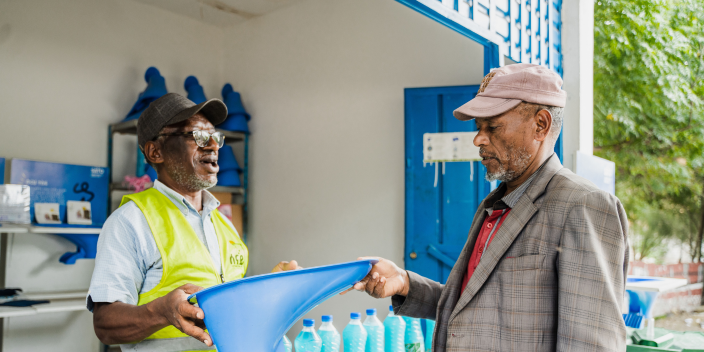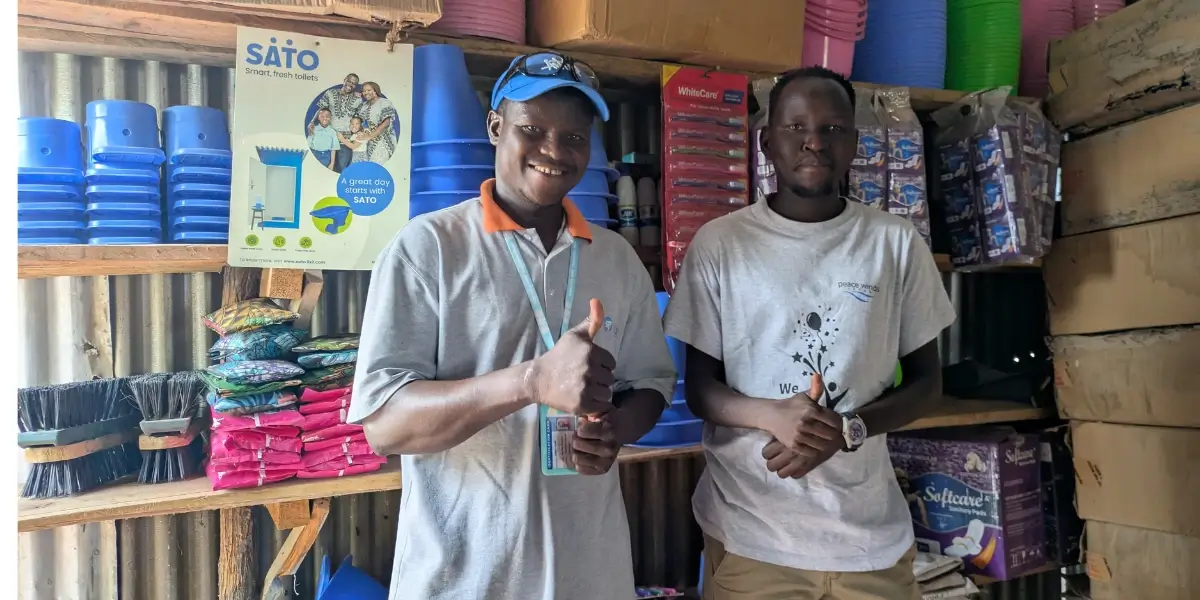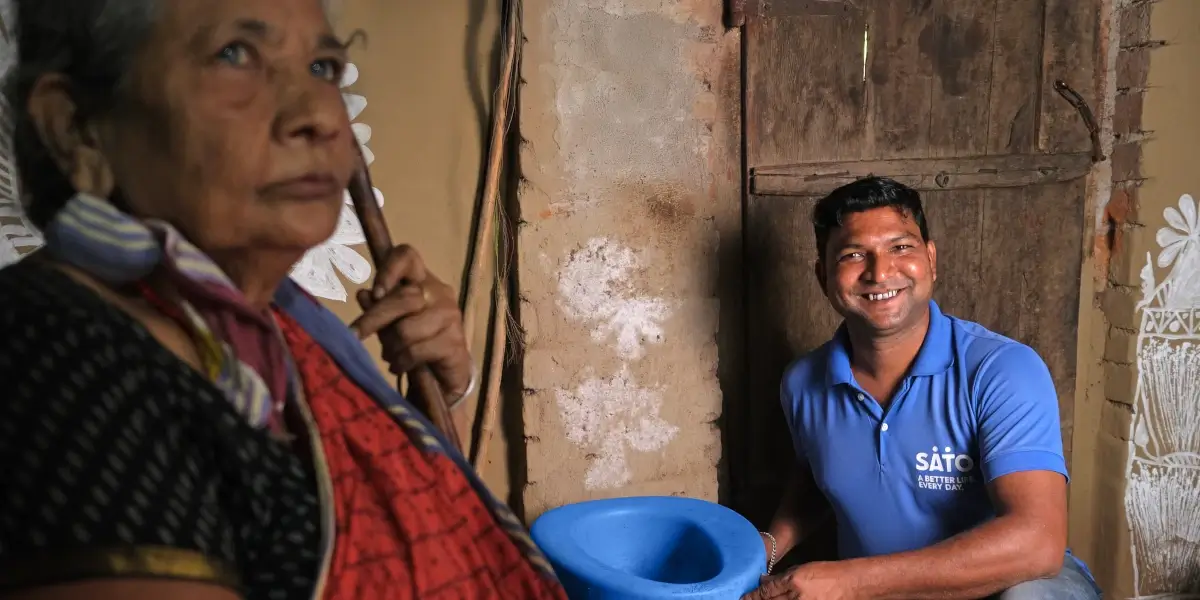
Toilets: a business opportunity for Nigeria’s entrepreneurs

By Olwale Michael Adegbe, Leader, Nigeria at SATO
The Nigerian sanitation gap – the proportion of the population without access to safe and hygienic sanitation facilities – is one of the largest in the world. According to UNICEF, as of 2019, 48 million people practise open defecation in Nigeria. Sanitation and Water for All have shown that less than half of Nigerians have access to basic sanitation services, and only 18% of those services are safely managed. To solve this issue, Nigeria needs talented businesspeople with many different skills, including retailers, salespeople, and installation experts to drive access to toilets. Nigeria is not helpless in the face of this challenge; it is an exciting opportunity for creative and ambitious entrepreneurs who know how to look at a problem from new angles.
The fact that Nigeria has the largest economy in Africa shows that it is full of private businesses and creative entrepreneurs who are ambitious and unafraid to tackle the big problems facing the country. It is therefore surprising how few have turned their attention to addressing the sanitation gap, one of the most exciting and impactful business opportunities in the country today.
The business of sanitation offers sustainable financial growth because entrepreneurs in this sector can enter untapped markets and become a part of new, robust supply chains. These supply chains are networks of businesses including manufacturers, distributors, retailers, sales agents, and masons skilled in the installation of sanitation products. Beyond the direct sale and installation of toilets, there’s a market for other services like waste collection and processing. Private enterprise plays a crucial role in this ecosystem, driving innovation and efficiency, and making sanitation solutions more accessible and affordable than they would otherwise be. The private sector’s involvement also stimulates local economies by creating jobs and fostering a competitive market that leads to better services for consumers.
Moreover, creative entrepreneurs in this area have the opportunity to impact the growth of the entire Nigerian economy. Evidence suggests that poor sanitation has one of the largest negative economic impacts of all types of infrastructure, meaning that fixing this problem is also one of Nigeria’s greatest opportunities.
The Water and Sanitation Program (WSP) has estimated that poor sanitation costs Nigeria 455 billion Naira every single year. Improvement in safe sanitation and hygiene will not only prevent disease; private sector sanitation initiatives will spur advancements in related areas such as water supply, hygiene products, and green technologies.
This broadens the scope of business opportunities and environmental benefits even further. Entrepreneurs can leverage these interconnected needs to build comprehensive safe sanitation and hygiene solutions that offer real, sustainable value to their customers and communities.
One success story is that of Hajiya Hadiza Mohammed. Recognising the acute need for improved sanitation in Kwagwalo Community of Katanga Ward in Warji LGA, She became a TBO (Toilet Business Owner) in 2016 by launching a business focused on the production and installation of cost-effective, safe toilet units. She constructs an average of 55 toilets per month with a profit of 5000 naira per toilet when she first started working with more than 7000 clients across several communities. Hajiya’s venture has not only become profitable but has also significantly impacted public health and environmental sustainability in its operational areas. There are amazing opportunities available for other business leaders like her who are willing to bring innovative people together to solve the country’s sanitation crisis.
The business of toilets in Nigeria is more than just a venture into an underserved market; it’s an opportunity to make a profound societal impact. The sanitation gap presents a lucrative opening for entrepreneurs to build successful businesses while contributing to public health, environmental sustainability, and economic development.
The sanitation industry offers a wide array of opportunities, supporting a chain of services and professions that together can transform the landscape of sanitation in Nigeria. The success stories of toilet business owners serve as a testament to the potential that lies in addressing one of the country’s most pressing needs. As Nigeria continues to develop, sanitation remains a critical, impactful, and viable path for entrepreneurial success and societal
improvement.
WANT TO STAY UP TO DATE?
Subscribe to our newsletter to stay on top of the latest news, views, and stories from on the ground.
The easiest way to do this is to sign-up for our LinkedIn newsletter here. We'll then send you a bi-monthly letter from our Leader, Erin McCusker.

Similar articles
While global in scope our stories are local at heart.



 Copyright © LIXIL 2026
Copyright © LIXIL 2026